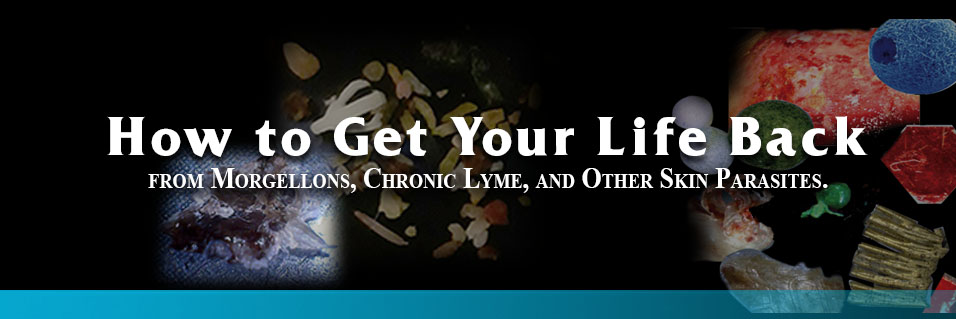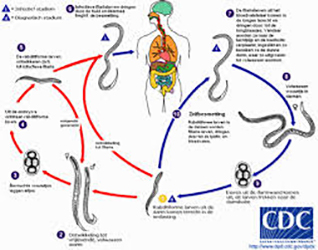
 |
 |
Strongyloides On the Rise In Australia 7/1/18 |
Strongyloides is another skin parasite that threatens health and sanity and results in itching symptoms of its rashes. A release just issued regarding it' rise in Australia, titled Australia has seen the parasites resistant to medication. I must warn you that it's a scary article and pertains mainly to the indigenous tribes of Australia. However, it's symptoms--rashes, diarrhea, and cough are to be noted as true. I have 7 questions on my questionnaire related to Strongyloides that I gave in an update a few weeks ago, "Are you Suffering from Strongyloide?"
s. Do you have rashes on your skin? However, you don't need all of them to suspect strongyloides. In fact, I only had rashes and none of the other symptoms
A more informational article titled Strongyloidiasis is a deadly worm infecting many Australians, yet hardly anybody has heard of it gives you a lot more information about the disease but also echos the grimness of the above article. It's a disease more prevalent in disadvantaged populations and transmitted mainly by stepping in feces or infected ground. I was infected from a cloud of dust from containing infected feces from a bird nest.
For more information about the disease, DermNet NZ
Melissa, writes, "World Health Org recommends Apple Flavored Vermectin for horses. The reviews on Amazon tell how to dose. Works great for humans. I am finally getting it GONE! The doctors were no help as usual. Here’s the link nd the testimonials you can scroll thru. AND ITS CHEAP! get the 3 pack. You will need it. I have used it topically too. And I used a very dilute version on a Q-tip in my eye. Instant relief. https://www.amazon.com/gp/product/B000HHLWPI/ref=oh_aui_detailpage_o00_s00?ie=UTF8&psc=1 THANKS, Melissa :) I thank Melissa for taking the time to contribute. Note that this is her experience and I'm only passing along what she wrote. I'm neither recommending or not recommending the use of Vermectin. Please note that generally neither Collembola or Morgellons manifest themselves with rashes. And there are many causes for rashes which can be as basic as a bacterial infection under the skin. In any event, it makes sense to cleanse the skin with our Nature's Gift™ Debriding Soap. Before I was diagnosed, massive use of garlic and then the King Diet™ may have been instrumental at keeping it's symptoms at bay. And then, it's possible that the disease wasn't seriously affecting me anyway as noted above some can host the disease for 30 yrs with minimal or no symptoms. Years ago, the only lab I knew that could diagnose the disease was in Tucker GA but it's gone out of business just a couple months ago. However, I'm told that Quest Diagnostics, a popular lab used by most doctors, can now run the test. However, the above article notes that even with the blood test you can have false positives. Strongyloides stercoralis is a round worm which is called a flat worm which is confusing to me as there is also a classification of flat worms. |
 |